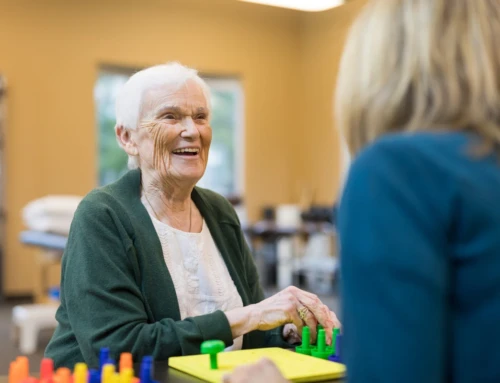
When small memory slips start happening—forgetting names, misplacing familiar items, or losing track of appointments—it’s easy to wonder: is this just part of getting older, or something more?
Recognizing the early signs of dementia can feel difficult, but it’s one of the most important ways families can plan ahead with understanding and compassion. Early awareness opens the door to better support, proactive care options, and more shared quality time with the people we love.
If you’re starting to notice changes, here’s what to watch for—and why acting sooner matters.
Why Early Detection Matters
It’s natural to hope that a loved one’s forgetfulness is harmless. After all, we sometimes lose our keys or forget words occasionally.
But when memory changes start disrupting daily life, they deserve attention.
Early recognition means:
- Planning thoughtfully for future care
- Exploring supportive services sooner
- Helping your loved one stay safe and engaged longer
- Reducing family stress by having clear next steps
Early intervention often leads to better outcomes for individuals and their families, even though dementia cannot yet be cured.
Common Early Signs of Dementia
According to trusted sources like the Alzheimer’s Association and the Mayo Clinic, here are early symptoms that families commonly notice:
1. Memory Changes That Disrupt Daily Life
Forgetting recently learned information, repeatedly asking the same questions, or depending on memory aids.
2. Difficulty Planning or Problem-Solving
Struggling with tasks like following a recipe, managing finances, or making a familiar trip.
3. Confusion About Time or Place
Losing track of seasons and dates or forgetting where they are—even in familiar settings.
4. Trouble Understanding Visual Information
Problems judging distance while driving, difficulty reading, or misinterpreting patterns or spaces.
5. Changes in Speaking or Writing
Pausing mid-sentence, repeating stories, or searching for simple words.
6. Misplacing Things Often
Placing objects in unusual places—like leaving keys in the refrigerator—and being unable to retrace steps to find them.
7. Poor Judgment or Decision-Making
Handling money irresponsibly, neglecting personal hygiene, or showing less awareness of danger.
8. Withdrawing from Activities or Social Engagements
Avoiding hobbies, social events, or favorite routines because they feel overwhelming.
9. Mood or Personality Changes
Becoming confused, suspicious, depressed, anxious, or easily upset.
Normal Aging or Something More?
It’s important to recognize that not every memory slip points to dementia.
| Normal Aging | Possible Dementia |
|---|---|
| Occasionally forgetting a name | Forgetting names and not remembering them later |
| Misplacing things but finding them later | Putting items in strange places and unable to find them |
| Losing focus sometimes | Struggling to complete everyday tasks |
If you notice multiple signs happening consistently—or worsening—it’s worth seeking professional advice.
What to Do if You Notice Early Signs
If you’re concerned about memory changes, a good first step is scheduling an appointment with a doctor.
Cognitive screening tests are simple and help identify whether further evaluation is needed.
Early assessment can provide peace of mind—or open the door to early interventions and support services that make a real difference.
Many families find that getting information early helps everyone feel more prepared and less fearful about the future.
Gentle Support for the Next Steps
Conversations about memory concerns can be sensitive and emotional.
If you’re wondering how to bring up the topic with a parent or loved one, here are a few ideas:
- Choose a quiet, non-stressful time to talk
- Use “I” statements: (“I’ve noticed…” vs. “You keep…”)
- Focus on safety, comfort, and future planning
- Be ready to listen—and respect their feelings
The goal isn’t to rush decisions—it’s to open doors for support together.
Memory Care Resources for Families
Memory changes affect not just individuals but entire families.
Specialized care environments can help seniors continue living with dignity, routine, and connection even as their needs change.
Communities that offer Memory Care, like Farmington Square Medford, are designed with these needs in mind:
- Gentle daily routines
- Familiar spaces that feel comforting
- Team members trained in cognitive support
- Opportunities for engagement without overwhelming pressure
If you’re looking for support or simply starting to explore living options, having a trusted, caring environment can ease the journey.
Final Thoughts
Recognizing the early signs of dementia doesn’t mean losing hope—it means taking proactive steps to protect quality of life.
Whether it leads to a simple check-up, additional resources, or long-term support, noticing the signs early gives families the gift of time: time to plan, connect, and support one another with understanding.
When questions arise, or the path ahead feels uncertain, know you are not alone. Help, information, and community are ready when you are.




